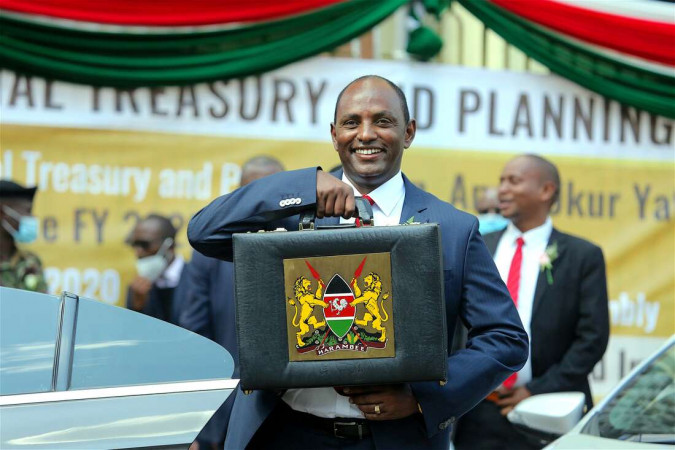Experts concerned despite bills dropping by Sh33b

Pending bills continue to haunt the country as counties and State firms drag their feet in complying with directives to clear arrears to contractors and suppliers.
Although the bills dropped by Sh33.2 billion in the period ended March 31, experts warn the pace of settlement is still too slow to ease liquidity constraints faced by firms which threaten to drive them into bankruptcy, or increase their likelihood of defaulting on loans.
During the three month period, the figure stood at Sh434.5 billion down from Sh467.7 billion owed suppliers at the end of December 31, 2021, according to the latest quarterly economic and budget review document by the National Treasury and Planning ministry.
Treasury Cabinet Secretary Ukur Yatani while delivering 2022/23 budget last month directed government ministries, departments and agencies and county governments to clear all their pending bills by June 30. “Though some progress was noted in settlement of these bills by the National and County governments, we still have challenges where a number of suppliers are owed large amounts of money, “ he said.
Financial indiscipline
Samuel Nyandemo, a senior economics lecturer at the University of Nairobi attributed the slight drop in the levels in the first quarter of the year, to delayed release of funds by National Treasury because of constraints in cash flow financial indiscipline and corruption at the county level.
“Whatever is used comes from the National Treasury, which is constrained by paying public debt. Treasury’s cash flow has also been affected by a shrinking revenue base and also the effect of the Covid-19 pandemic, where most of the money was used in the stimulus package,” he said.
As at March 31, 2022, Kenya’s total public debt was Sh8.4 trillion, well within reach of the Sh9 trillion ceiling set by the National Treasury. According to the quarterly review, the stock of gross domestic debt increased by Sh622.5 billion from Sh3.6 trillion in March 2021 to 4.2 trillion in March, 2022, bringing it at par with the country’s external borrowing including international sovereign bond.
External borrowing stood at Sh4.2 trillion in the review period. This was against total revenue collected including appropriation in aid amounting to Sh1.52 trillion against a target of Sh1.50 trillion, which was above target by Sh14.3 billion driven by above target performance of ordinary revenue.
The burden of mounting public debt is underscored by the fact that it will become the country’s single largest expenditure of the national government, with projected expenditure by the National Treasury mandarins putting the service levels at Sh1.36 trillion in the fiscal year 2022/2023, up from Sh1.15 trillion the previous fiscal year.
Nyandemo also attributed the large stock of unpaid bills, especially at the county level to corruption, where officials such as procurement officers demanded kick-backs and that led to delays in release of the funds.
Financial fidelity
While agreeing with Nyandemo, a finance lecturer at the United States International University who preferred anonymity said there is need to enact legislation to compel authorities to exercise financial fidelity and discipline by “undertaking projects within the budgetary provisions and paying service providers promptly according to the terms of engagement.”
The pending bills comprise of Sh385.6 billion (88.7 percent) and Sh48.9 billion (11.3 per cent) for the State Corporations and Ministries/ State Departments and other government entities, respectively.












